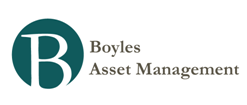Money and Finance
- Tim Harford: The Man Who Gives Geeks A Good Name
Tim Harford can't help himself. We are navigating our way to lunch in an unfamiliar city and I am momentarily disorientated by the mass of visual paraphernalia at a busy crossing. My hesitation is his cue for a story about the Dutch traffic engineer...
- John Mauldin: Economists Are (still) Clueless
The economic forecasts of mainstream economists are quite positive, if not enirely optimistic, reflecting the current data. Should we not take heart from that? Alas, no. I have been working the last few months with my co-author of Endgame, Jonathan Tepper,...
- John Mauldin: The Theology Of Inflation
We begin this week with a simple pop quiz. Is inflation good or bad? Answer quickly. I’m sorry – your answer is wrong. Or rather, we can’t know if your answer is right or wrong because we are not sure what is meant by the question. We may...
- Keen To Be Heard
Steve Keen, associate professor of economics at the University of Western Sydney, is becoming something of a superstar. He has been acknowledged as one of a handful of economists to have predicted the global financial crisis and now is a regular speaker...
- Barry Schwartz Interview
Found via Simoleon Sense. The European: The classical economic point of view is that peoples’ decisions results from a careful weighing of what will create the most desirable result. What do you advocate? Schwartz: Well, I think this picture is completely...
Money and Finance
Prospect Magazine interviews Tim Harford
Link to interview: Big data, bad prophets and Brian Cox: An interview with Tim Harford
You write about economics for a wide audience, is that because you believe there’s some benefit in wider economic literacy?
I do, but I also just find it fascinating. I don’t think Brian Cox does The Wonders of the Solar System because he believes the world would be a better place if people understood about the rings of Saturn, I just think he finds physics extremely interesting. It brings him joy and he wants to spread the love. I feel the same about economics. Our society is intertwined with the economy that we’ve built, which is a fantastically complex system. I hope that my writing about it might do some good, but that’s not why I do it.
What do you think the wider public perception is of economics?
There’s a sort of split personality here. People widely feel that economics did not perform very well in the crisis, and yet they keep coming to economics for forecasts. Somehow people can’t quite kick the habit of asking economists for advice.
Economists are seen as prophets, then?
I think the association of economics with forecasting is unfortunate, and is down to the fact that one great way to get an investment bank’s name on business television is to hire a guy called a Chief Economist who will go and prognosticate. John Maynard Keynes famously said it would be splendid if economists were a competent humble profession like dentists. You would never ask your dentist to predict how many teeth you will have in 20 years’ time, or whether you will need to have your wisdom teeth out. You ask your dentist for advice on keeping your teeth healthy, and for help if you have a problem. Equally, economists should primarily aspire to give good advice about keeping the economy healthy.
Do you find it frustrating when economic bodies’ words get co-opted by journalists and politicians?
I never understand why “economist makes forecast” is ever a headline. Whether the economist in question is from the International Monetary Fund, a City forecasting group or the Treasury—a forecast is still not news.
…………..
Related book: The Undercover Economist Strikes Back: How to Run or Ruin an Economy
- Tim Harford: The Man Who Gives Geeks A Good Name
Tim Harford can't help himself. We are navigating our way to lunch in an unfamiliar city and I am momentarily disorientated by the mass of visual paraphernalia at a busy crossing. My hesitation is his cue for a story about the Dutch traffic engineer...
- John Mauldin: Economists Are (still) Clueless
The economic forecasts of mainstream economists are quite positive, if not enirely optimistic, reflecting the current data. Should we not take heart from that? Alas, no. I have been working the last few months with my co-author of Endgame, Jonathan Tepper,...
- John Mauldin: The Theology Of Inflation
We begin this week with a simple pop quiz. Is inflation good or bad? Answer quickly. I’m sorry – your answer is wrong. Or rather, we can’t know if your answer is right or wrong because we are not sure what is meant by the question. We may...
- Keen To Be Heard
Steve Keen, associate professor of economics at the University of Western Sydney, is becoming something of a superstar. He has been acknowledged as one of a handful of economists to have predicted the global financial crisis and now is a regular speaker...
- Barry Schwartz Interview
Found via Simoleon Sense. The European: The classical economic point of view is that peoples’ decisions results from a careful weighing of what will create the most desirable result. What do you advocate? Schwartz: Well, I think this picture is completely...

